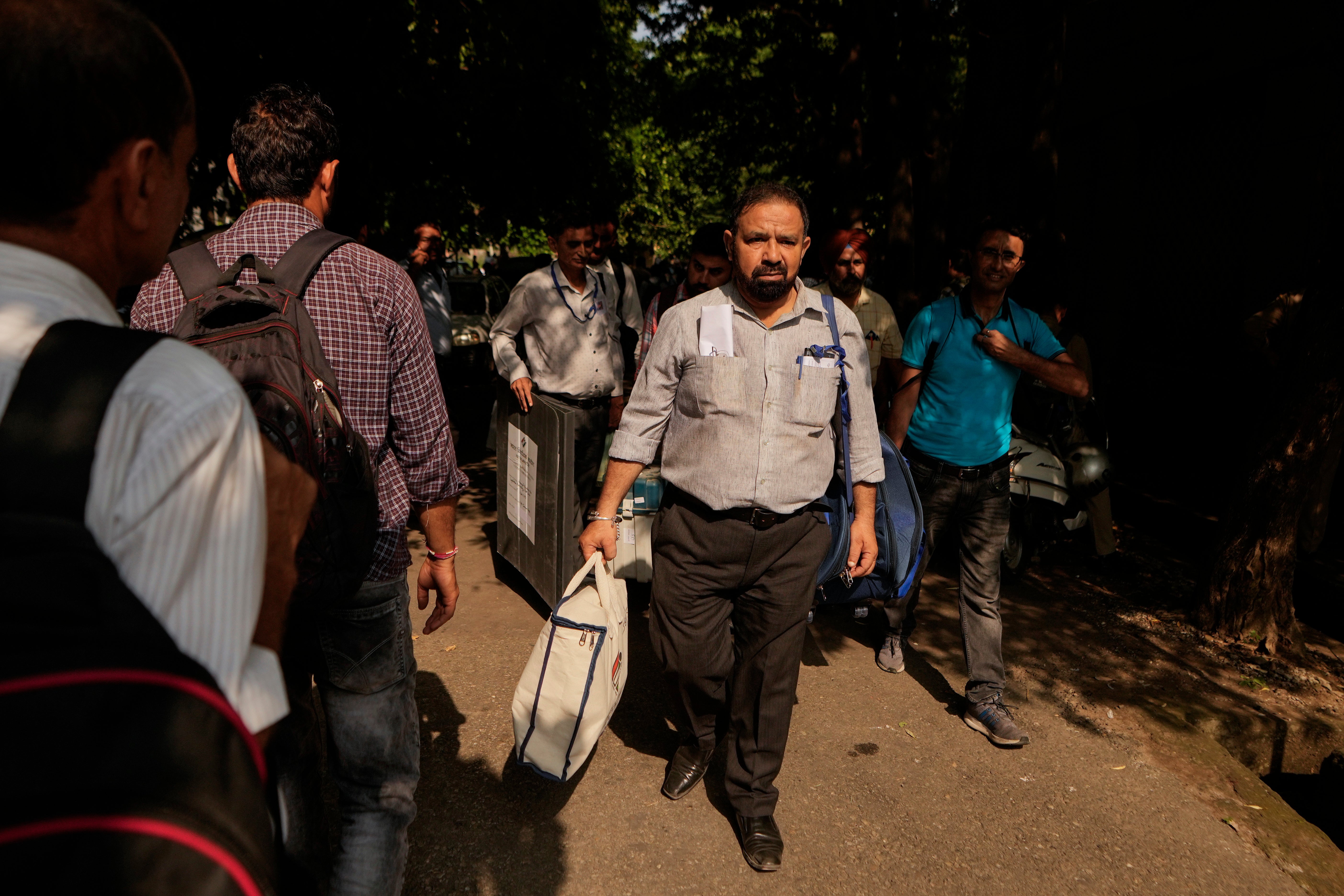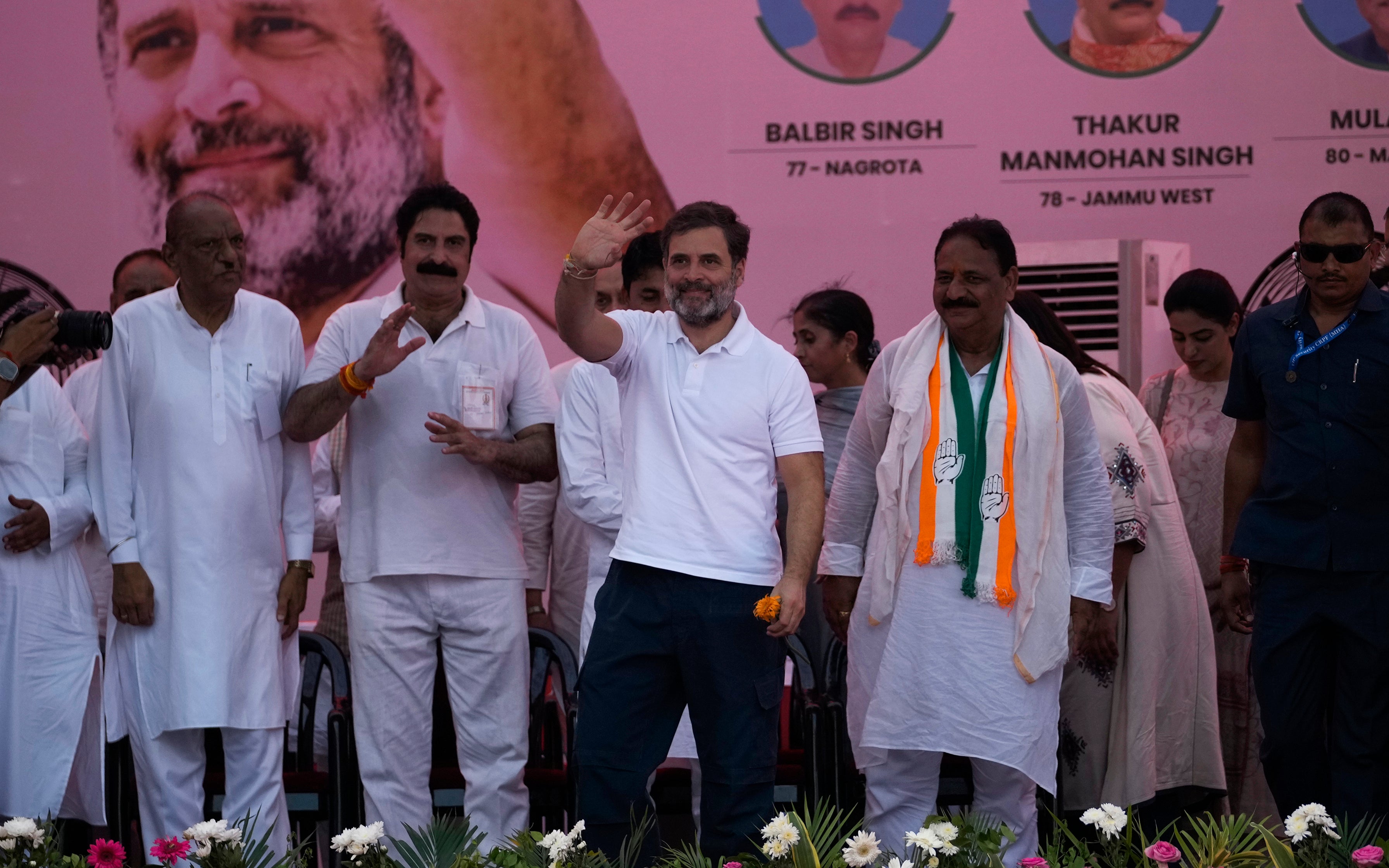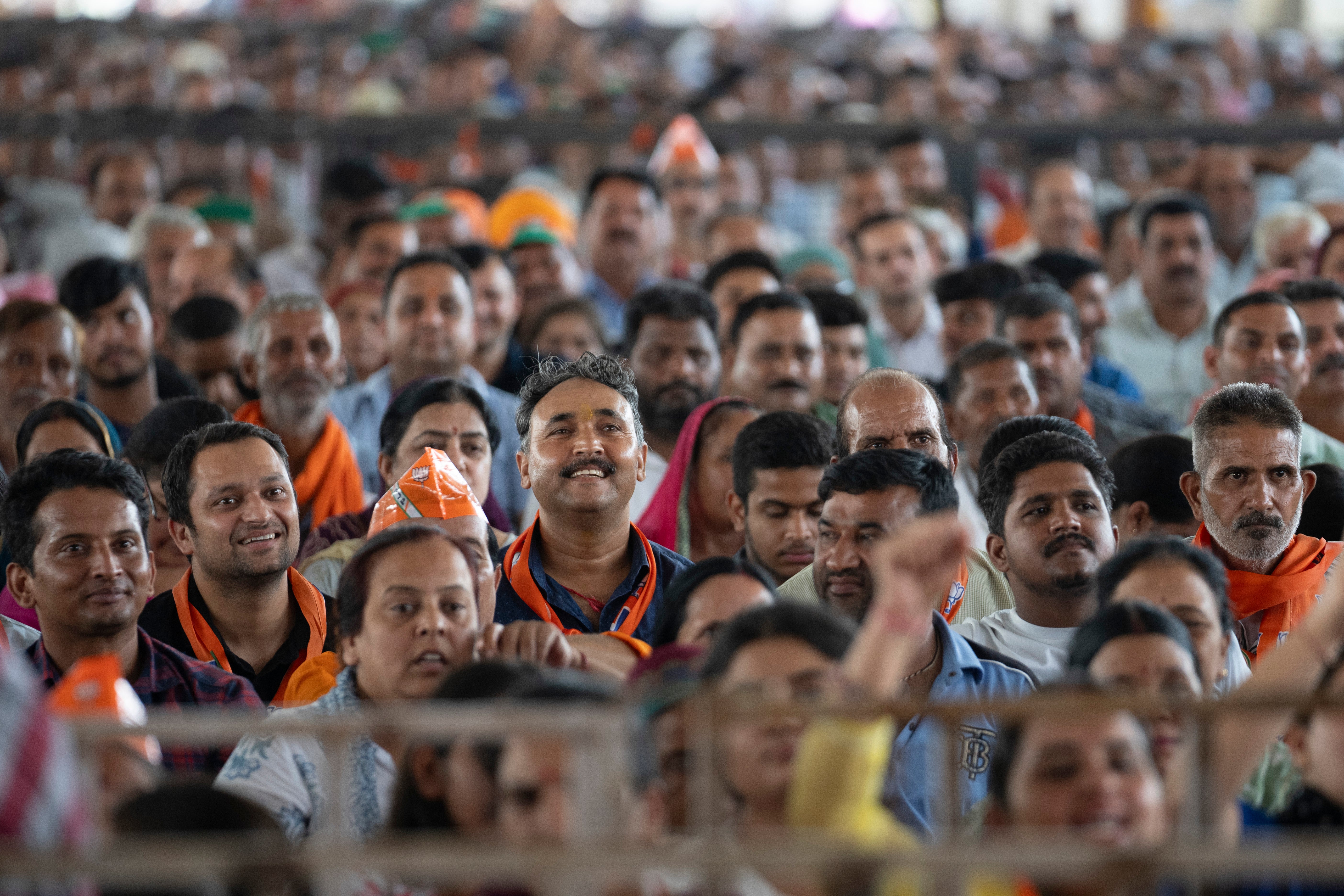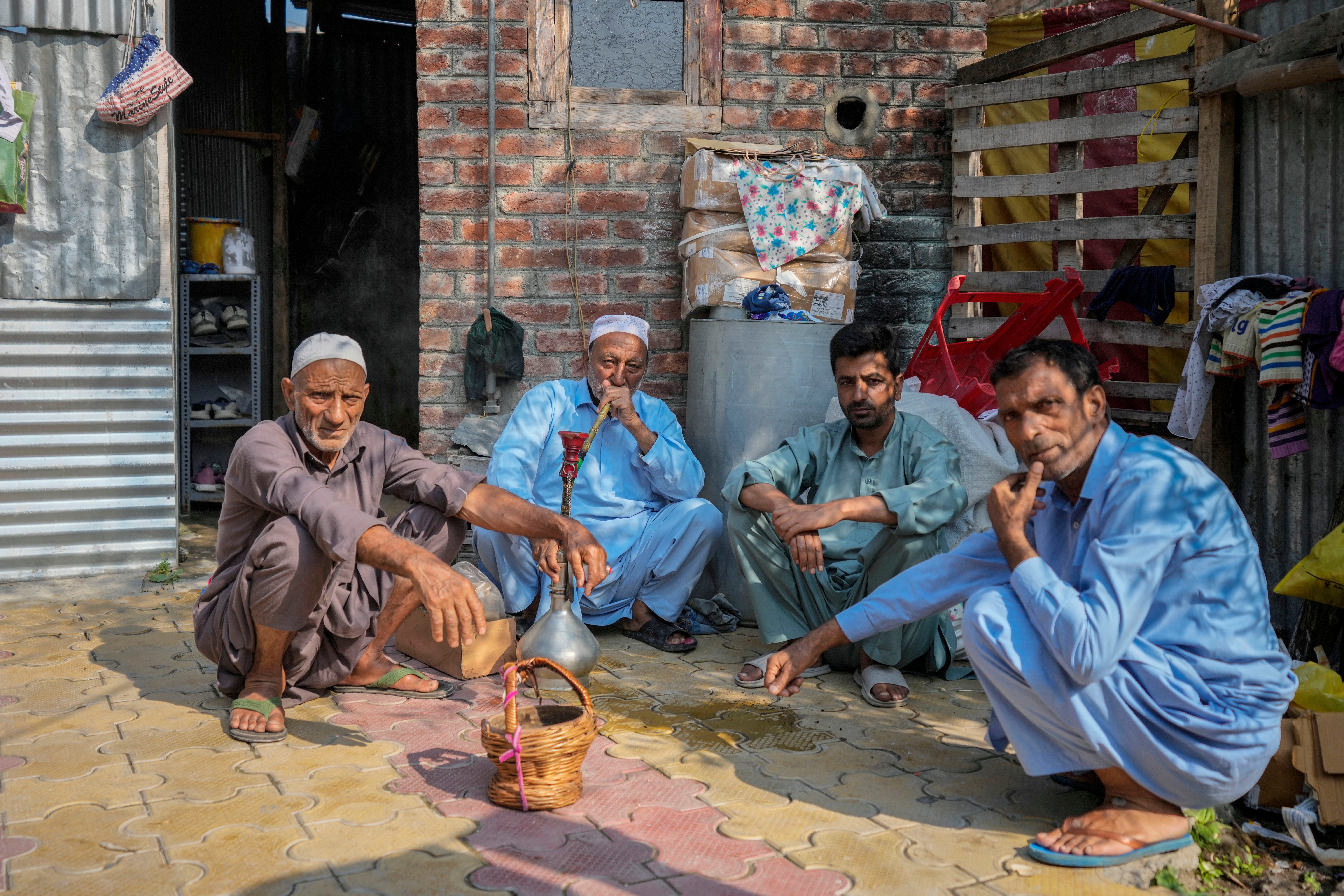India election results: Mixed results for Modi’s BJP in Haryana and Jammu & Kashmir polls
Elections are crucial for BJP as it aims for a third term in Haryana and inroads in Kashmir
Your support helps us to tell the story
From reproductive rights to climate change to Big Tech, The Independent is on the ground when the story is developing. Whether it's investigating the financials of Elon Musk's pro-Trump PAC or producing our latest documentary, 'The A Word', which shines a light on the American women fighting for reproductive rights, we know how important it is to parse out the facts from the messaging.
At such a critical moment in US history, we need reporters on the ground. Your donation allows us to keep sending journalists to speak to both sides of the story.
The Independent is trusted by Americans across the entire political spectrum. And unlike many other quality news outlets, we choose not to lock Americans out of our reporting and analysis with paywalls. We believe quality journalism should be available to everyone, paid for by those who can afford it.
Your support makes all the difference.Narendra Modi’s ruling party is seeing mixed results across two tightly-contested local elections in different parts of India on Tuesday.
The Bharatiya Janata Party (BJP) is in the lead in the state of Haryana which borders the capital Delhi, but trails in the federal territory of Jammu and Kashmir, which is seeing its first election results in a decade.
The first local elections in India since Mr Modi’s party lost its outright majority in parliament, the polls are seen as an important barometer for support for the Hindu nationalist leader.
The BJP was hoping for a third straight term ruling Haryana’s state assembly, and to make inroads into the former state of Jammu and Kashmir, which the Modi government stripped of its semi-autonomy in 2019 and split into two federally-administered territories – Ladakh and Jammu-Kashmir.

As of Tuesday afternoon local time, the BJP won 25 out of Haryana’s 90 seats, with Congress winning 18. Exit polls had predicted a win for Congress, the main opposition party on the national scene.
In Jammu and Kashmir, by 4pm with 85 out of 90 seats declared, Congress had won 40 seats and was leading in two more, while the BJP had taken 27 and was leading in two.
NC leader Farooq Abdullah, the father of former chief minister Omar Abdullah, told reporters on Tuesday that his son was set to become Jammu and Kashmir’s chief minister once again.

“After 10 years, the people have given their mandate to us,” the senior Abdullah told reporters. “We pray to Allah that we meet their expectations. It will not be ‘police raj [kingdom]’ here but public here. We will try to release the innocent from jail. Media will be free. We have to develop trust between Hindus and Muslims,” he said.
Though Mr Modi has promised to restore Jammu-Kashmir’s statehood, in practice the local government will have little power with the federal administration retaining most legislative authority.
The BJP kicked up a pre-election row after it decided to let the lieutenant governor of the federal territory appoint members in five reserved seats, which led to a massive outcry as the party was accused of trying to subvert democracy.
The five reserved candidates, chosen by the governor, will reportedly represent Kashmiri displaced persons and those from Pakistan-administered Jammu and Kashmir. These five will have full legislative powers and privileges, exactly like elected representatives.
One of the most-watched seats in Haryana, meanwhile, was being contested by former Olympic wrestler Vinesh Phogat. At around noon it was confirmed that she had won the Julana constituency, representing Congress.
“Many congratulations to the country’s daughter Vinesh Phogat for her victory. This fight was not just for one Julana seat, it was not just with 3-4 other candidates, it was not just a fight between parties. This fight was against the strongest oppressive forces in the country. And Vinesh emerged victorious,” Bajrang Punia, a fellow wrestler who joined Congress days before the assembly election along with Phogat, posted on X.

The voter turnout for the 90-seat Haryana assembly was 67.90 per cent.
Election was held in three phases in Jammu and Kashmir, with a voter turnout of 63.45 per cent, slightly lower than the 65.52 per cent seen in the 2014 polls.
Once a dominant political force in Jammu and Kashmir, the People’s Democratic Party (PDP) was predicted to struggle. The party just won three seats.
Mehbooba Mufti, the last chief minister of the undivided Jammu and Kashmir, acknowledged that voters chose a “stable government” as PDP faced one of its worst defeats.
She said that people of Jammu and Kashmir believed that the Congress-NC alliance could provide stability and keep the BJP out of power.
The PDP had previously formed a coalition government with the BJP in 2015, but it collapsed in 2018 after the BJP withdrew support following Ms Mufti’s leadership takeover after her father’s death.
Iltija Mufti, daughter of Ms Mufti, also conceded defeat in the assembly elections while contesting from the Bijbehara constituency – a stronghold of the Mufti family.

Congress, NC and PDP have all accused the BJP of trying to benefit the party in the elections. Ms Mufti called the appointment of members in five reserved seats a brazen “pre-result rigging and shameful manipulation” while the senior Abdullah threatened to go to the Supreme Court.
“What they want to do, I do not know. However, if they do it, we will go to the Supreme Court. What is the point in making the government, if the Lord Sahib remains here? We have to fight against all this,” he said referring to the governor Manoj Sinha.

Join our commenting forum
Join thought-provoking conversations, follow other Independent readers and see their replies
Comments